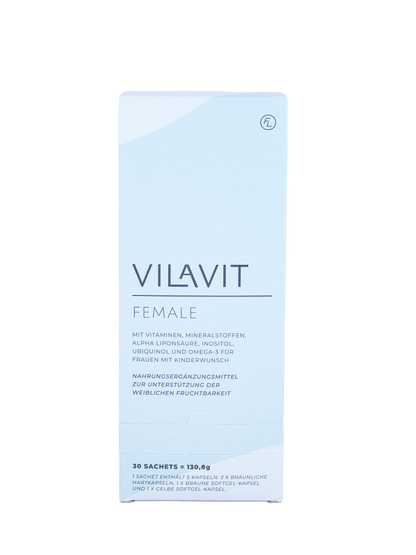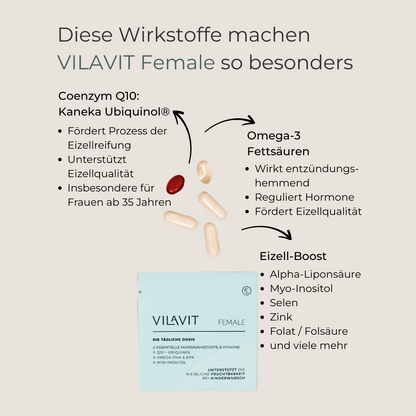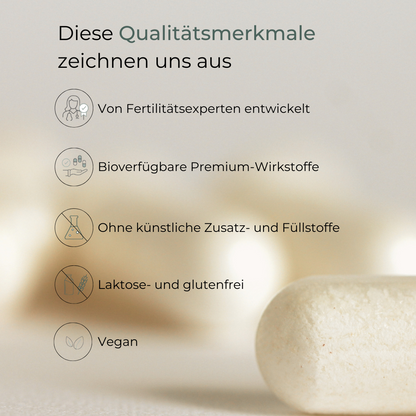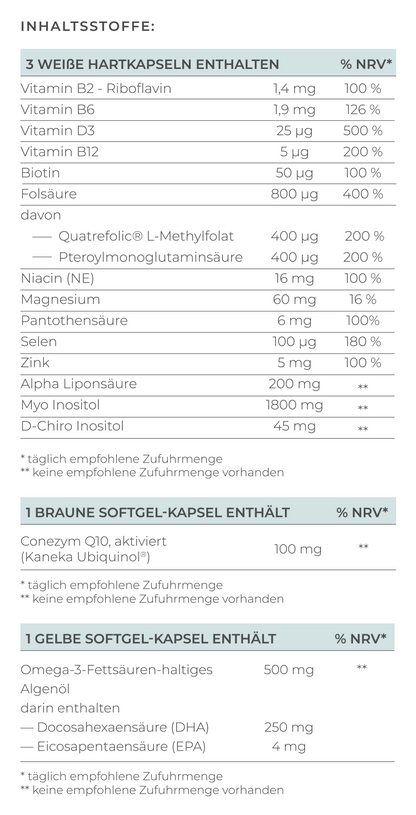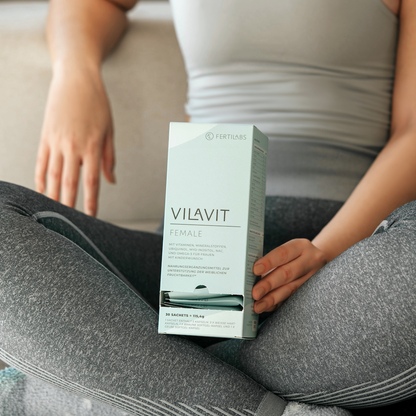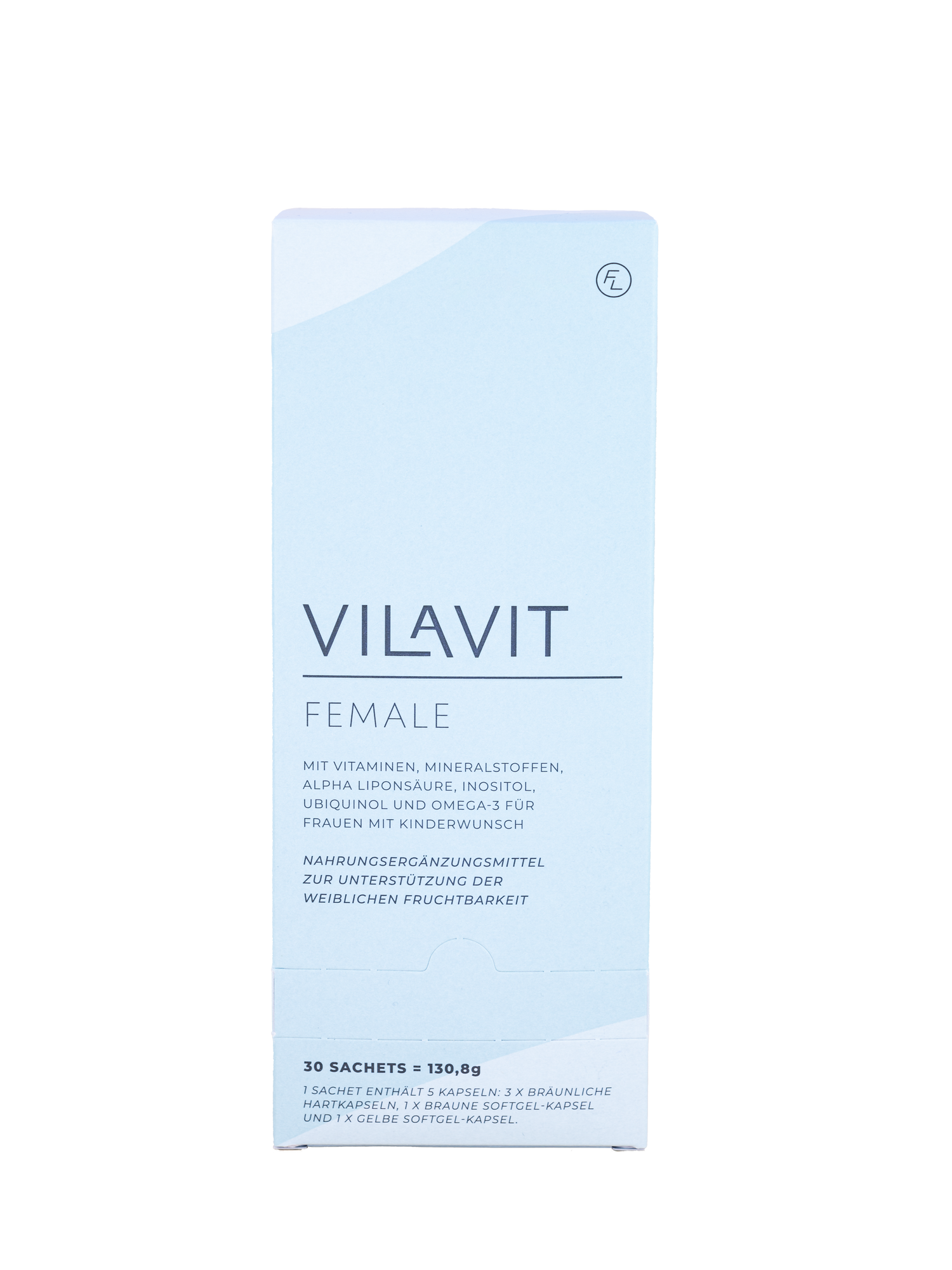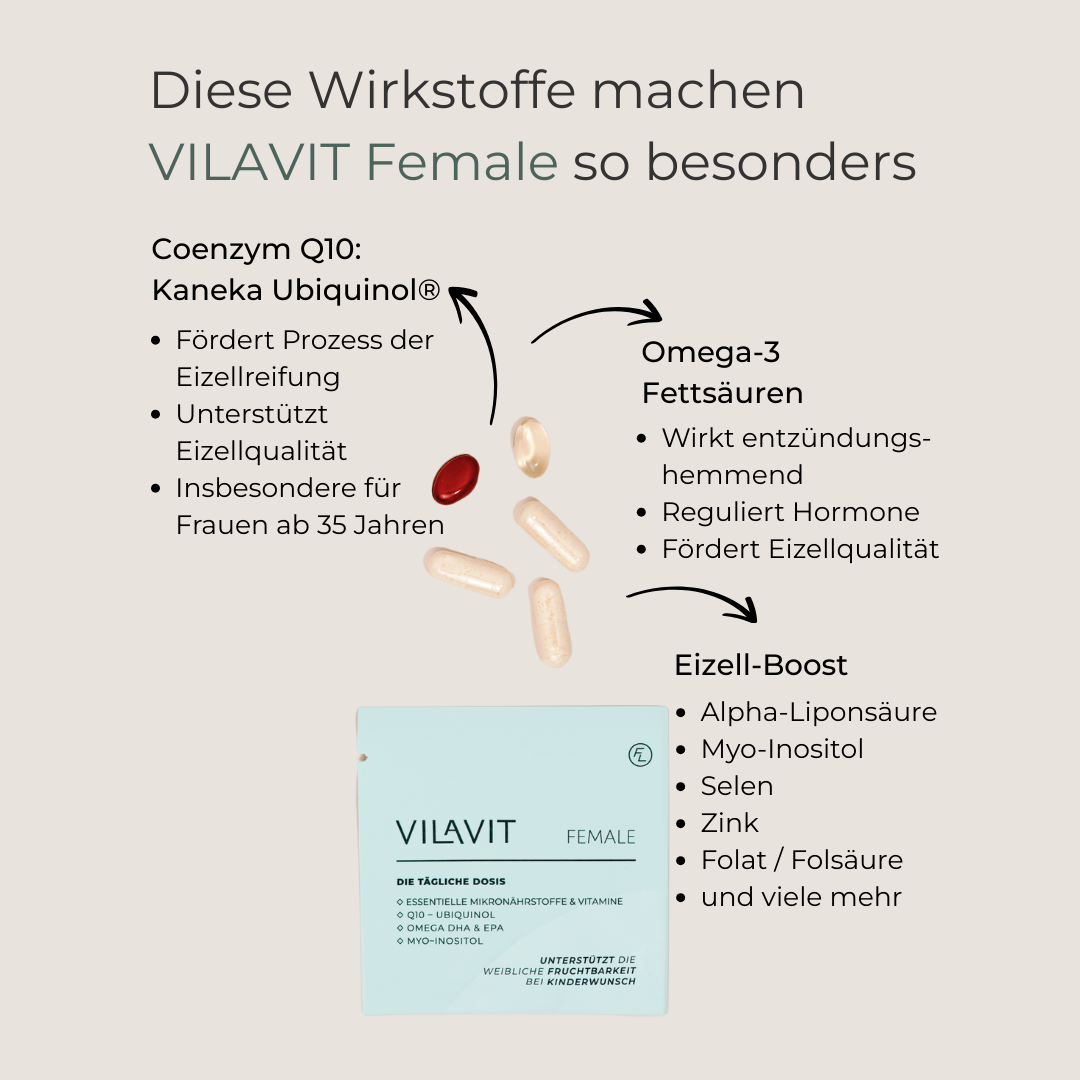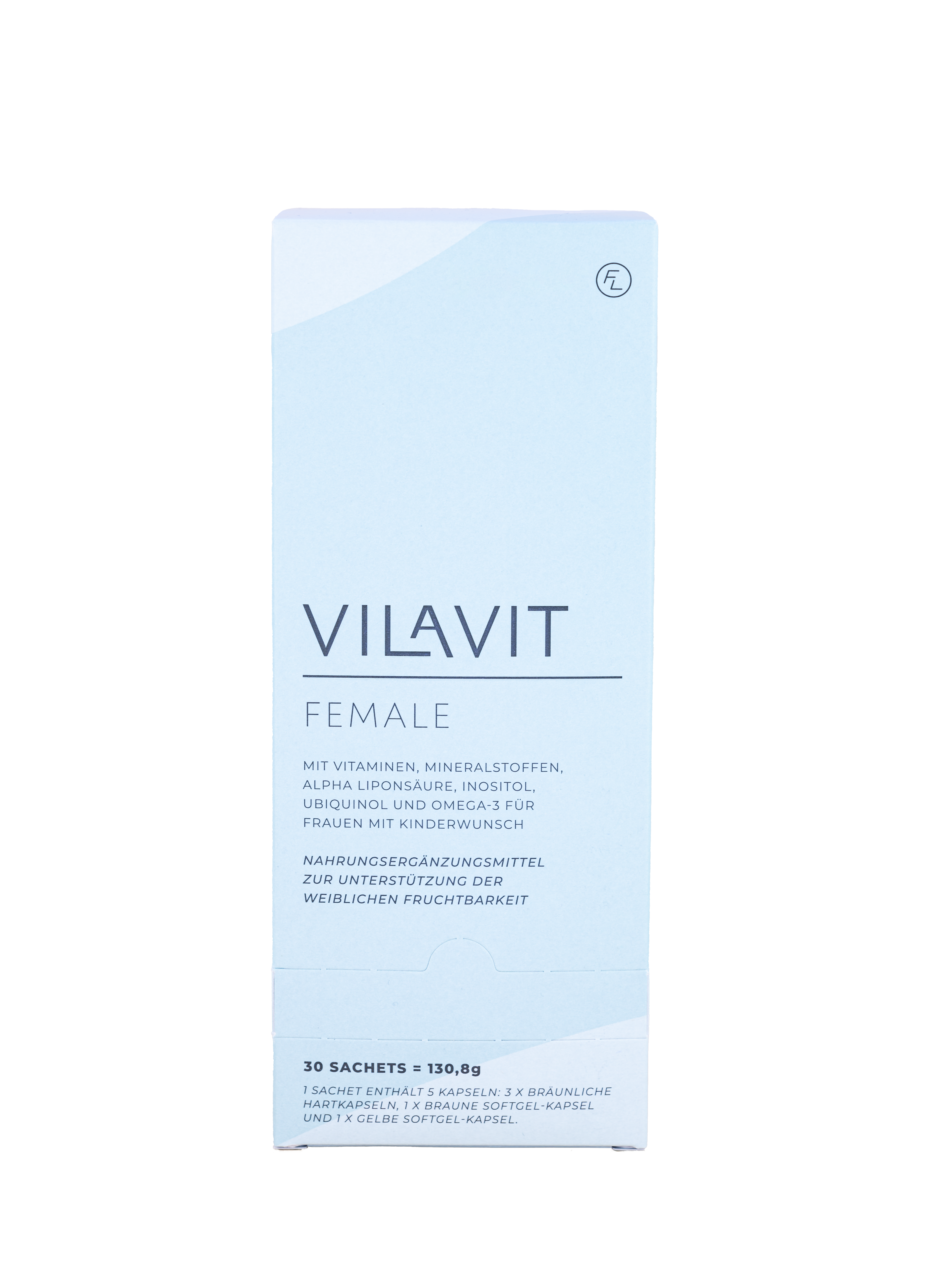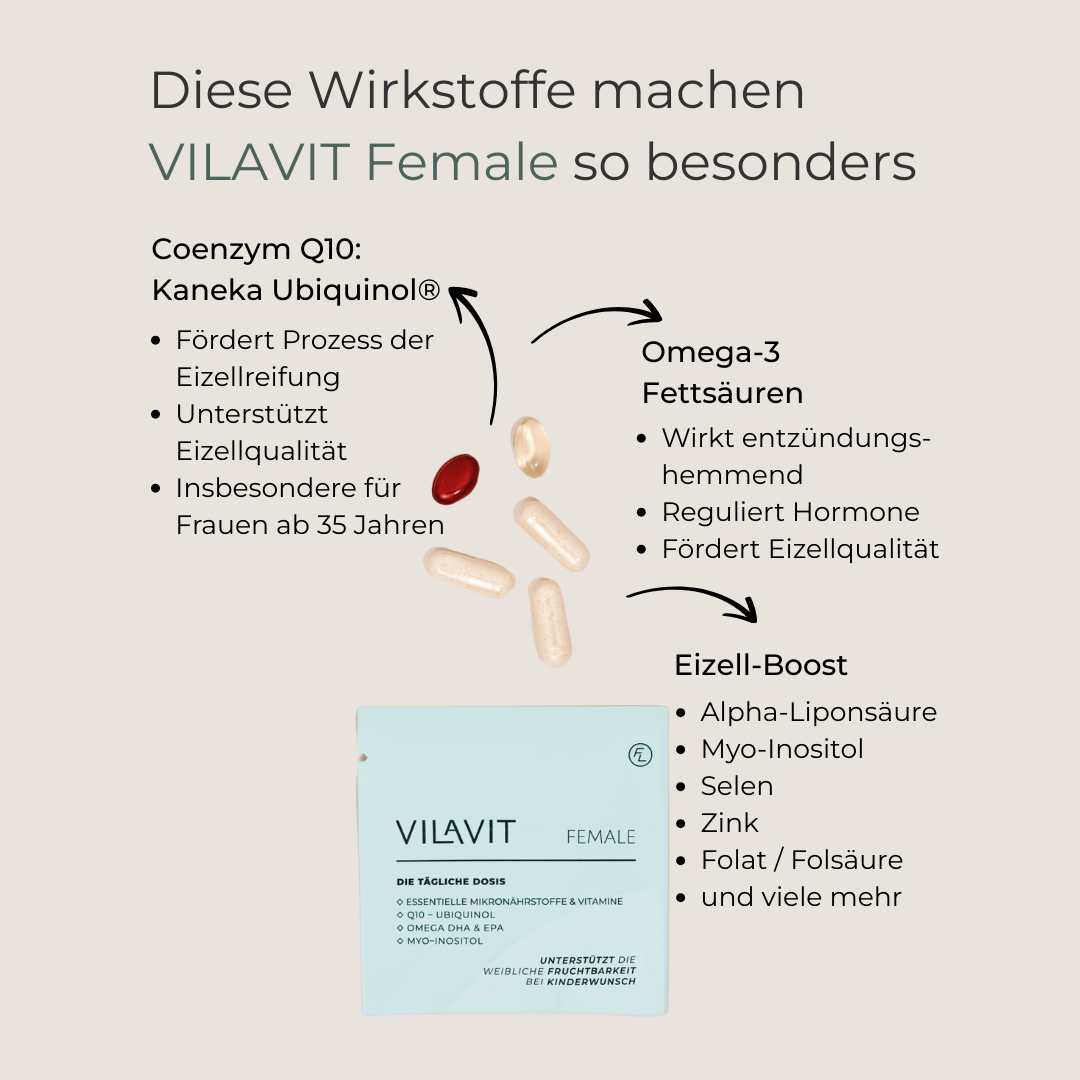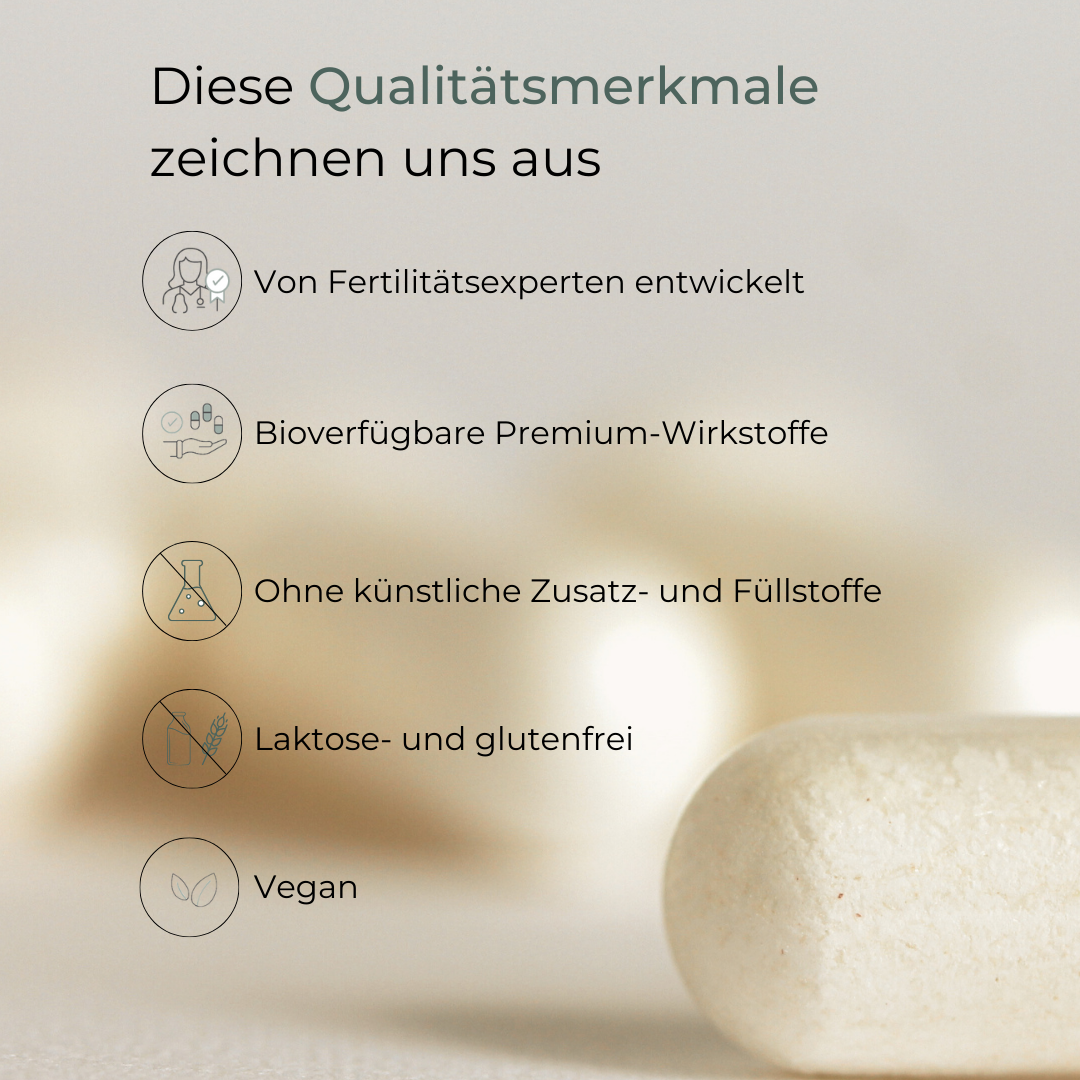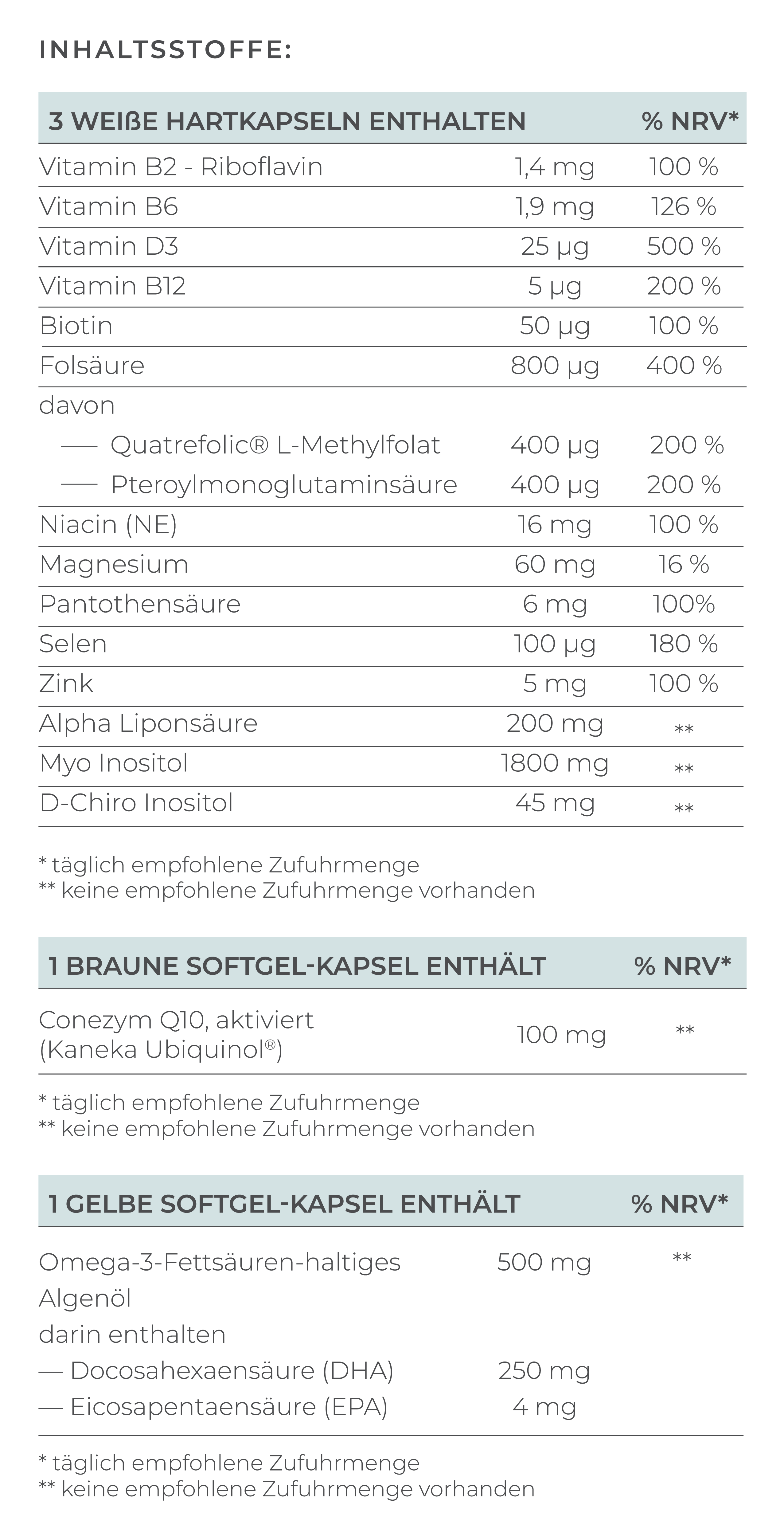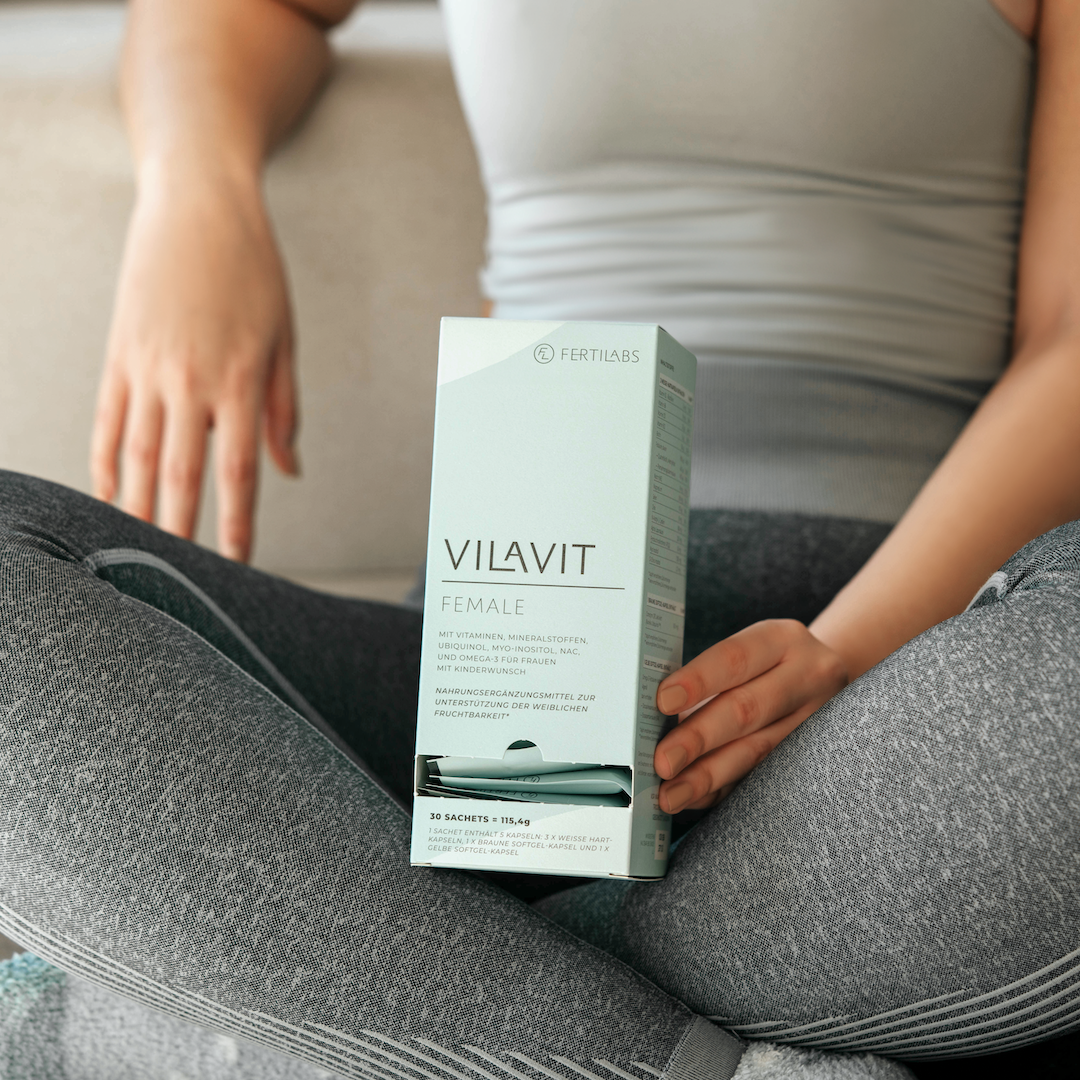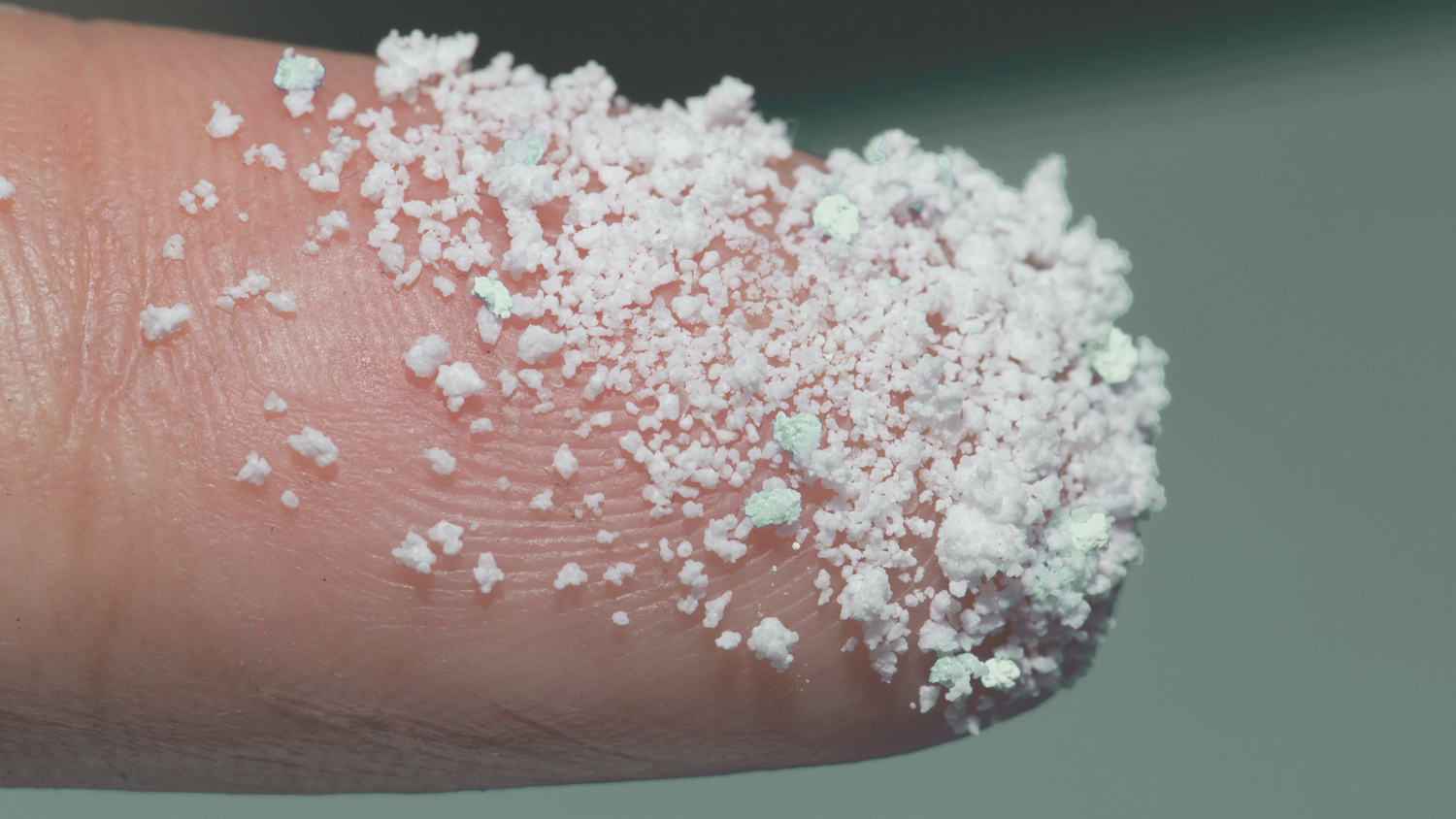The key points at a glance: Alpha Lipoic Acid and Fertility
- Alpha Lipoic Acid (ALA) is playing an increasingly important role in supporting fertility for couples trying to conceive.
- ALA acts as a powerful antioxidant that protects cells from damage caused by free radicals.
- ALA improves egg maturation, fertilization rates, and early embryonic development.
- ALA shows positive effects on PCOS and endometriosis.
- ALA increases sperm motility, vitality, ejaculate volume, and sperm concentration.
- Positive effects are seen with a daily intake of 200 to 400 mg of ALA over a period of at least three months
Alpha Lipoic Acid: A Therapeutic Measure to Support Fertility
In recent years, micronutrients have played an increasingly important role as a therapeutic measure to support fertility in couples trying to conceive. One micronutrient that stands out is Alpha Lipoic Acid (ALA), a powerful antioxidant that is becoming an invaluable helper. ALA protects cells from oxidative stress, a major factor in fertility issues, and recent studies show impressive effects on both female and male fertility.
What is Alpha Lipoic Acid?
Alpha Lipoic Acid is a natural compound that acts as a powerful antioxidant. It plays a key role in cellular energy metabolism and helps neutralize free radicals that can cause cellular damage.
Thanks to its unique ability to dissolve in both water and fat, ALA can counter oxidative stress throughout the body. These properties make Alpha Lipoic Acid a promising candidate for supporting fertility enhancement.
Supporting Female Fertility
Studies have shown that Alpha Lipoic Acid can have a significant supportive effect on female fertility. It can improve egg quality by promoting the process of egg maturation and has positive effects on the number of eggs in the MII stage (mature eggs ready for fertilization). Fertilization rates and early embryonic development also benefit from the intake of Alpha Lipoic Acid (Di Tucci et al., 2021).
Additionally, research shows that Alpha Lipoic Acid supports women with fertility issues such as endometriosis. It can help reduce pelvic pain, regulate the menstrual cycle, and improve metabolic disorders often associated with fertility problems (Di Tucci et al., 2021). This makes Alpha Lipoic Acid a valuable addition for women looking to support their fertility.
Alpha Lipoic Acid is increasingly being used as a supportive measure in the treatment of insulin resistance, especially in women with polycystic ovary syndrome (PCOS). Studies have shown that Alpha Lipoic Acid can improve insulin sensitivity and regulate glucose metabolism. In particular, the combination of Myo-Inositol and Alpha Lipoic Acid creates a synergistic effect that improves insulin resistance in PCOS patients (Guarano et al., 2023)
Improving Sperm Quality
Not only women but also men benefit from taking Alpha Lipoic Acid. Daily supplementation with Alpha Lipoic Acid (ALA) shows positive effects on sperm quality. A recent study demonstrated significant improvements in sperm motility and vitality with ALA intake.
A significant increase in both total motility and progressive motility of sperm was observed. These results are particularly noteworthy as high sperm motility plays a crucial role in fertilization. In addition, improved vitality and a significant increase in ejaculate volume and sperm concentration were detected. These results suggest that Alpha Lipoic Acid not only improves sperm quality but also positively influences sperm quantity (Hodeeb et al., 2023).
In Which Foods Can Alpha Lipoic Acid Be Found?
Natural sources of Alpha Lipoic Acid include:
- Green vegetables such as broccoli, spinach, or kale
- Red meat, especially organ meats
- Potatoes
- Tomatoes
Although Alpha Lipoic Acid is found in food, the amount is so small that supplementation with dietary supplements is often recommended to achieve therapeutic effects.
Intake Plan for Alpha Lipoic Acid for Fertility Support
The optimal dosage of Alpha Lipoic Acid can vary depending on the study and individual health conditions. In general, positive effects are seen with a daily intake of 200 mg to 400 mg.
In certain health conditions, such as increased insulin sensitivity in women with PCOS, higher dosages may be advisable under medical supervision.
The intake of Alpha Lipoic Acid to support fertility should ideally take place over a period of at least three months, as this period is necessary to promote egg maturation and spermatogenesis, the development of sperm.
Conclusion
In conclusion, Alpha Lipoic Acid, due to its antioxidant, anti-inflammatory, and insulin-sensitizing properties, can be a valuable support for couples trying to conceive. Both women and men benefit from the positive effects on egg and sperm quality, fertility in hormonal disorders such as PCOS, and overall cellular health. ALA offers a promising way to increase the chances of pregnancy, especially when combined with a healthy lifestyle and long-term use over at least three months.
FAQ:
When Should I Take Alpha Lipoic Acid?
Alpha Lipoic Acid is best taken in the morning with a meal. Since it is both fat- and water-soluble, it is optimally absorbed when taken with a meal that contains both fats and carbohydrates. It is also advisable to consume it with enough water to ensure optimal absorption.
Are There Any Side Effects of Alpha Lipoic Acid?
Alpha Lipoic Acid offers many health benefits—not only in reproductive medicine—but side effects can occur, such as gastrointestinal discomfort (nausea, vomiting, diarrhea, stomach pain). People with diabetes should be particularly cautious, as Alpha Lipoic Acid can lower blood sugar levels and lead to hypoglycemia. Allergic reactions are rare but possible and should be taken seriously.
References




